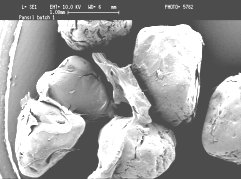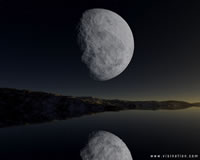Sorry that most of my recent posts have been responsive, rather than reflective. I haven't been taking the time to actually think things through, recently, and it shows in my writing. If you're a recent reader, my earlier writings are much different.
Anyway, since I've decided to focus on different things than reflection recently, I thought I'd think about the actual way I think (as confusing as that might sound.) As most of you know, a major factor of my spirituality focuses on Taoist philosophy. A major tenent I follow is to "unlearn my learning."
...and no, "unlearning my learning" this is not an excuse for me to not do my homework. The basic thought, for me, is that I am probably wrong. Keeping this in mind, we can observe the world and attempt to see its basic nature without our stubborn, human way of establishing things as TRUE when we don't have enough information. When we free ourselves of prejudice and dogma, in all of their forms, we begin to see the world as it exists. If divinity exists, its presence would be visible in everything, and it is probably arrogance to come to definite conclusions based on our limited information. We're just not smart enough to understand things for what they really are.
However, and perhaps paradoxically, after assuming this humility it becomes easier to see the fundamental ways the world works, which is the point of this article.
I'd like to start with a quote that took me quite a while to understand in a new light:

To see a world in a grain of sand,
And a heaven in a wild flower,
Hold infinity in the palm of your hand,
And eternity in an hour...
--W. Blake
This thought of being able to gain information about one subject by studying another is not a new concept. In fact, it's been a principle of Taoist thought for some time. With enough insight and wisdom, I believe that it could be possible to understand the universe by simply pondering a single grain of sand, even though it is only a small component of the larger picture. Similarly, I believe it's possible to use a grain of sand, and project what a desert might be like, and so on.

This thought of being able to gain information about one subject by studying another is not a new concept. In fact, it's been a principle of Taoist thought for some time. With enough insight and wisdom, I believe that it could be possible to understand the universe by simply pondering a single grain of sand, even though it is only a small component of the larger picture. Similarly, I believe it's possible to use a grain of sand, and project what a desert might be like, and so on.

Enlightenment is like the moon reflected on the water. The moon does not get wet, nor is the water broken. Although its light is wide and great, the moon is reflected even in a puddle an inch wide. The whole moon and the entire sky are reflected in dewdrops on the grass, or even in one drop of water.
Enlightenment does not divide you, just as the moon does not break the water. You cannot hinder enlightenment, just as a drop of water does not hinder the moon in the sky. The depth of the drop is the height of the moon. Each reflection, however long or short its duration, manifests the vastness of the dewdrop, and realizes the limitlessness of the moonlight in the sky.
Enlightenment does not divide you, just as the moon does not break the water. You cannot hinder enlightenment, just as a drop of water does not hinder the moon in the sky. The depth of the drop is the height of the moon. Each reflection, however long or short its duration, manifests the vastness of the dewdrop, and realizes the limitlessness of the moonlight in the sky.
--D. Zengi
I enjoy exposing myself to new subjects, so I can reflect on how they relate to what I already understand. I apply my Genetics knowledge to my group leadership interactions, but only by understanding the principles of why things are the way they are and not relying on simple information. By this, we begin to realize that small things can be infinitely expansive. By relating diversity in groups to diversity principles in Genetics, I feel that I gain much insight to the way diversity works. These principles can then be turned into information again by its application. During application, the information can be related to other principles and subjects, thereby recycling our previous understanding.
I don't think I could ever limit myself to one field of study. Though I believe that knowledge is power, I have agreed with the Yaqui brujo, Don Juan, in his statement that 'useless knowledge yields useless power.'
Hmm...
Does it follow that some forms of understanding are more powerful than other?
I don't think I could ever limit myself to one field of study. Though I believe that knowledge is power, I have agreed with the Yaqui brujo, Don Juan, in his statement that 'useless knowledge yields useless power.'
Hmm...
Does it follow that some forms of understanding are more powerful than other?


0 Comments:
Post a Comment
<< Home